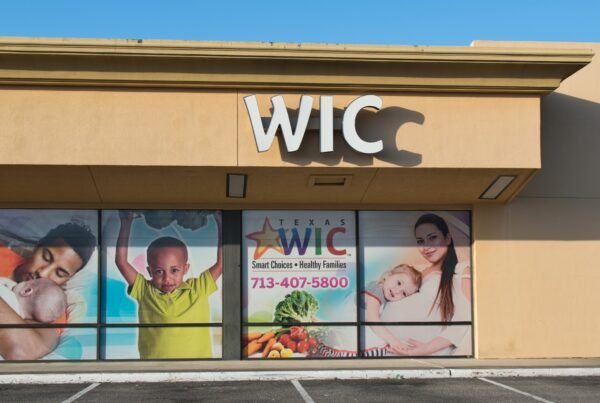The Iowa Catholic Conference (ICC) has released its “Faithful Citizenship for Iowa Catholics” letter for distribution in advance of the 2018 general election. The Catholic Church does not endorse or oppose candidates or political parties. However, it contributes to the political process by encouraging Catholics to take action in the political arena with a properly-formed conscience.
For more information on the social and moral teachings of the Church as they relate to our involvement in political activity, go to the “Faithful Citizenship” link at www.iowacatholicconference.org. The ICC has a Facebook page and can be followed on Twitter @iacatholicconf. Resources from the U.S. Catholic bishops are available at www.faithfulcitizenship.org.
The Iowa Catholic Conference is the public policy agency of the Catholic Church in Iowa. Its Board of Directors includes the Catholic bishops of Iowa and lay people, priests, deacons and religious sisters. The diocesan bishops of Iowa are Archbishop Michael Jackels of Dubuque; Bishop R. Walker Nickless of Sioux City; Bishop Richard Pates of Des Moines, and Bishop Thomas Zinkula of Davenport.
Download bishops’ letter – English
Download bishops’ letter – Spanish
Archbishop Jackels’ video message on our responsibility to protect life and care for the common good
Bishop Nickless’ video message for the 2018 election season (link not active)
Bishop Pates’ video message on Faithful Citizenship
Bishop Zinkula’s message on Faithful Citizenship and solidarity
2020 Primary Election candidate list – Iowa
US bishops’ Faithful Citizenship materials
Faithful Citizenship for Iowa Catholics
September 2018
As Americans, we celebrate our hard-won rights, often secured at the price of life or limb. Among these is the cherished right to vote.
As a matter of principle, when there is a right to something, there is also a corresponding duty. And so, we have a duty to exercise our right to vote.
The Catechism of the Catholic Church, commenting on the Fourth Commandment, teaches that the duty to vote is a moral obligation (2240).
The duty to vote includes the responsibility to be informed about issues so as to vote conscientiously.
For the sake of the formation of conscience, the Catholic Church has an extensive body of social teachings that translate the Gospel into daily living.
Catholic social teaching is based on the foundational principles of respect for human life and dignity, and the common good. No human person, whether a prisoner guilty of a capital offense, an infant in the womb, or a person disabled due to sickness or old age, can be stripped of or lose his or her dignity.
Being created by God is the basis of human dignity. But the root of human dignity goes deeper with the belief that people are created in the image and likeness of God, that they are redeemed by the death and resurrection of Jesus, and that God takes personally whatever we do (or don’t do) to any other person (see Matthew 25:30).
Human dignity is defended by the pursuit of the common good. It is the responsibility of a government, and of its individual citizens, to care for all people, especially those who need help to secure the things needed to live in dignity: productive work, fair wages, food, shelter, education, health care, and protection from harm.
We might disagree about how people access these things, but not about whether all people have a right to them.
And for that reason, pursuit of the common good includes ensuring that people have the right to migrate when the things needed to live in dignity are unavailable in their homeland.
But to be clear, advocating for human rights, like work, wages or immigration, doesn’t make any sense if we don’t defend the fundamental right to life of all people.
When it comes time to cast a vote, it may well be that no candidate lines up with both respect for human life and dignity, and the common good. So, what is a voter, with a conscience rightly informed by the teachings of Christ and his Catholic Church, to do?
There will never be a perfect candidate, but that’s no excuse not to vote, which would let some other force or voice fill the vacuum left by opting out. Rather, choose the candidate whom you believe will do the least harm, or who has potential to do the most good for the most people.
Our Holy Father Pope Francis, in his exhortation on holiness, “Rejoice and Be Glad,” warns us against the error of separating religious practice and social engagement. He teaches that “we cannot uphold an ideal of holiness that would ignore injustice” (paragraph 101).
The right and duty to cast an informed vote is an important Catholic social teaching, and a great way for us to have an impact on all aspects of public life. Voting and other forms of political engagement are as much a duty of our religion as is daily prayer and Sunday worship.
For more information on the social and moral teachings of the Church as they relate to our involvement in political activity, go to the “Faithful Citizenship” link at www.iowacatholicconference.org.
Yours in Christ,
| Most Rev. Michael Jackels Archbishop of Dubuque |
Most Rev. Thomas Zinkula Bishop of Davenport |
| Most Rev. R. Walker Nickless Bishop of Sioux City |
Most Rev. Richard Pates Bishop of Des Moines |




